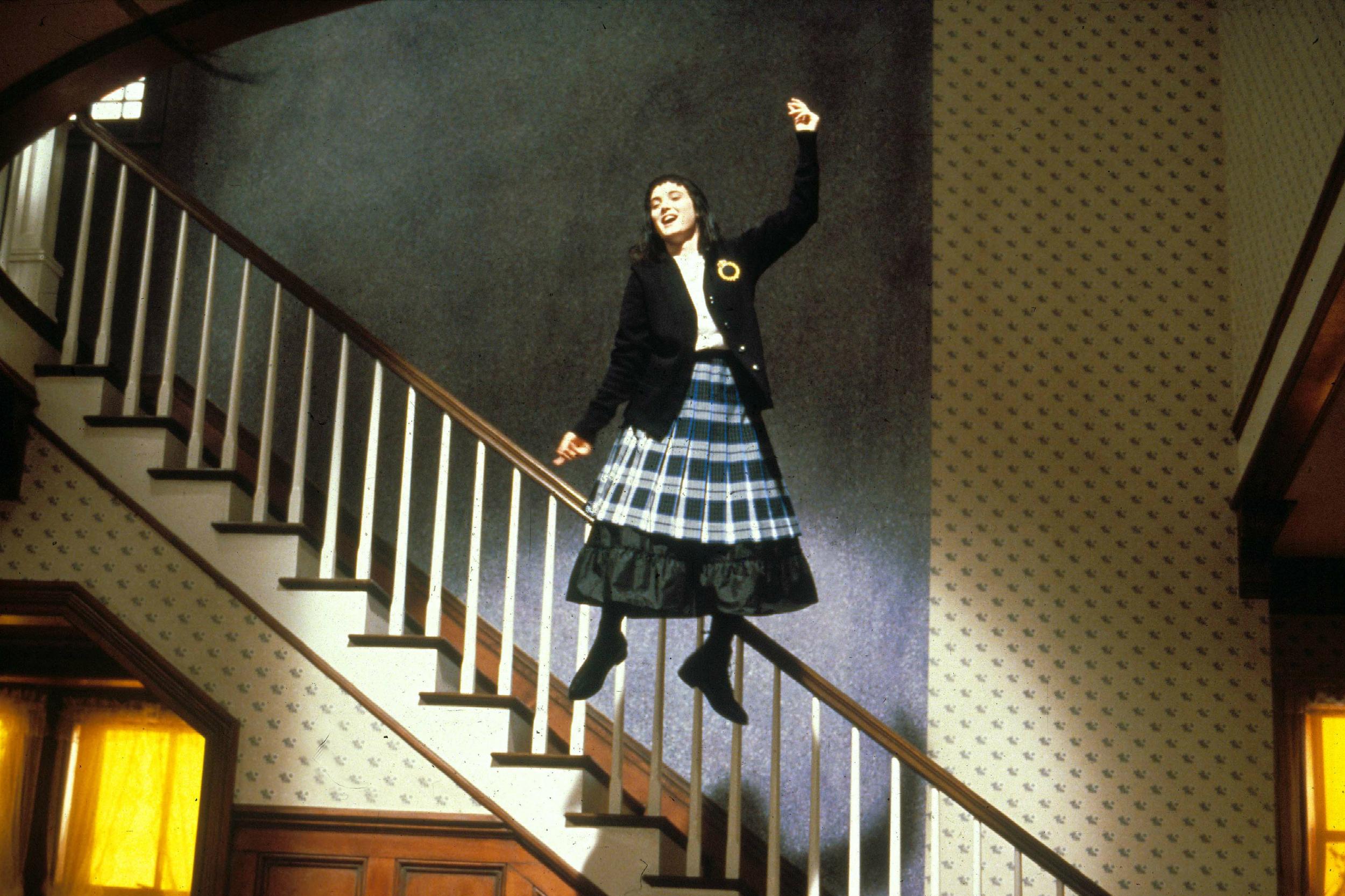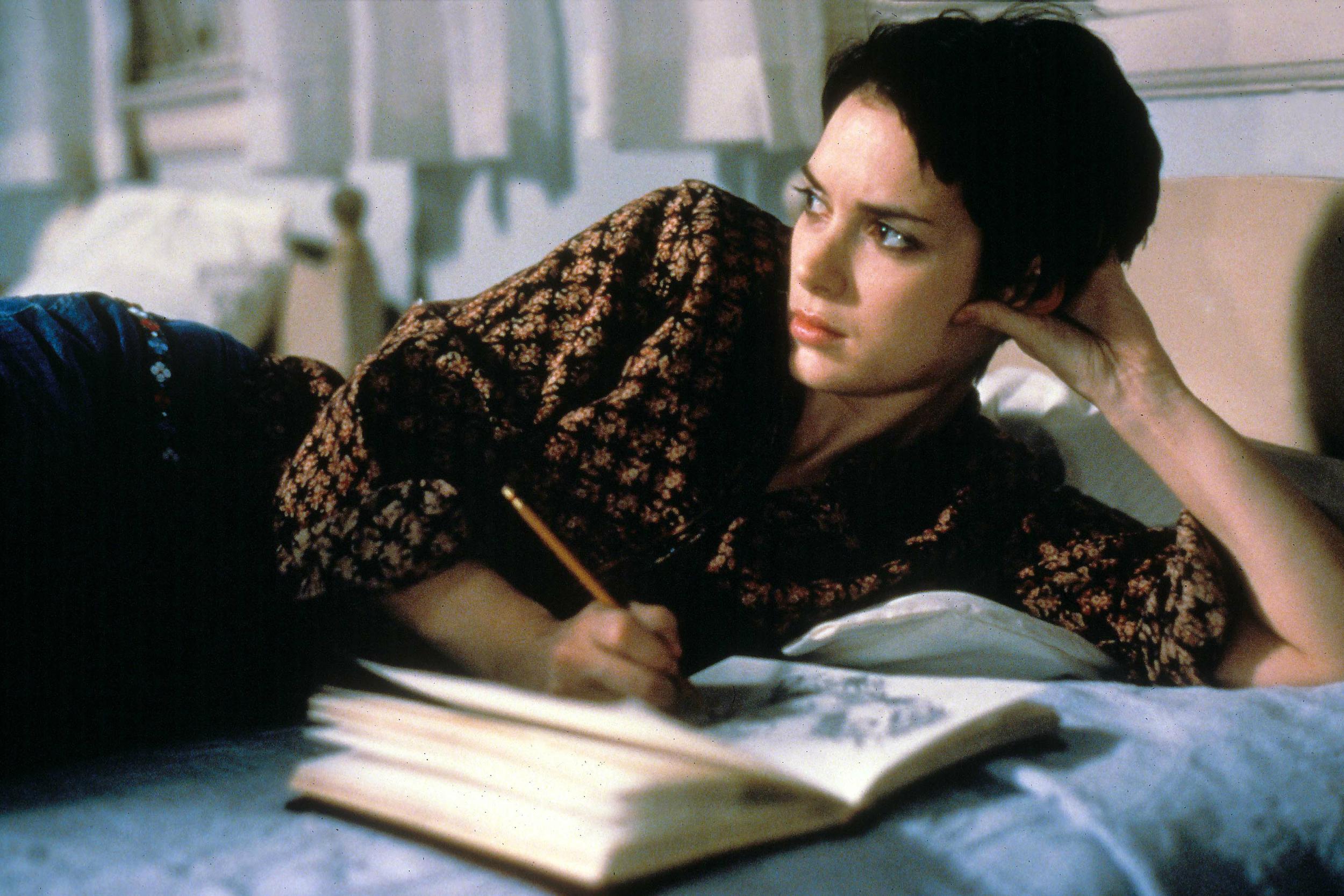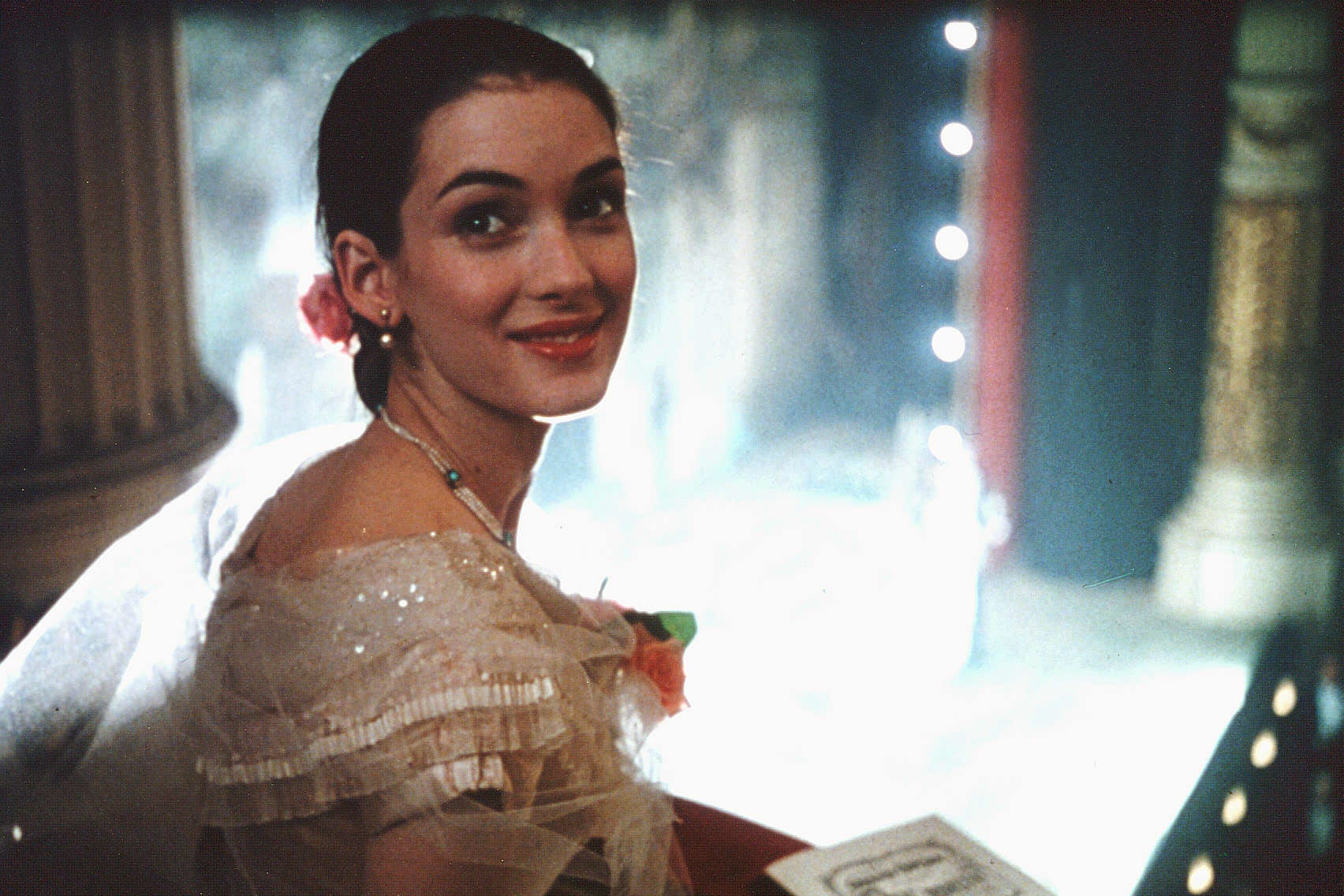To a certain set, of a certain generation of teenage girls, Winona Ryder was a salvation. Over the course of the eighties, filmmaker John Hughes and his Brat Pack of young actors sold the teenage experience to the world as a set of neat archetypes: jock, cheerleader, nerd. On that throne of relatability sat none other than Molly Ringwald.
She was the girl everyone wanted to be but conversely already saw themselves as. She was sweet and pretty but not too popular. Charismatic but definitively an outsider. Yearning to be prom queen but sat always on the edges. Thanks to the magic of the movies at least, she could bag her dream boy. It was the stuff of aspiration.
Yet those aspirations are hardly universal, are they? Hughes and Ringwald left a shadow over the late eighties that would inevitably have to give way to a counter cultural response; an answer for the teenage girls whose sources of anxiety weren’t necessarily social acceptance, or blissful romance.
They were girls who viewed the American Dream, as repackaged by Hollywood, with a more cynical eye. Ryder helped satisfy those desires and, in turn, was launched as her own kind of cultural figurehead.
Beetlejuice‘s Lydia Deetz, certainly, provided a radical antithesis in 1988: a world-weary, obsessively-morbid goth who made The Breakfast Club’s Ally Sheedy look an amateur. But it was Heathers, in the same year, that changed the game, tearing up the concept high school bore any kind of base civility, or that teenagers were incapable of experiencing existential crisis.
Ryder’s Veronica was a hero only in her ability to see past the bull, fulfilling a very different kind of girlhood dream: squaring up to bullies, deadbeat guys and her parents. She did so not with a heartfelt chat during detention, but by far more radical means.
Heathers, with Ryder at its helm, was a quietly pivotal moment in teen movies; though largely addressed now as a cult favourite, it warmed the genre to viewing the high school ecosystem through a more wary lens. Alicia Silverstone’s Cher Horowitz in Clueless (1995), in a way, offers happy accordance between eighties aspirationalism and its counter. The style, the lingo might all be deeply covetable, but Cher’s also fairly efficient at self-parody.
Cue her distress when her Alaïa dress gets dirty while she’s being mugged at gunpoint. From there, The Craft (1996), Mean Girls (2004), and the deeper cynicism of the 2000s could arise – think Cruel Intentions (1999) and the Machiavellianism of Gossip Girl.

Winona Ryder’s own cinematic teens could arguably be classed as their original muse, while also providing a constant source of girlhood inspiration – from the early nineties to now – due partially to what she’s come to represent: a kind of unconscious rebellion. She’s not quite James Dean, turning forcefully on the system that produced her. She’s just trying to be Winona Ryder.
And in that, she represents the kind of girl, the kind of woman, who’s been labelled rebellious merely for daring to exist outside a predetermined box; the kind of woman we’ve seen and loved over and over again. It should be no great surprise that one of Ryder’s most beloved roles is as Jo March, in Gillian Armstrong’s adaptation of Little Women (1994).
A classic unwitting rebel, deemed headstrong and troublesome merely for rejecting her handsomely-matched suitor because – naturally – she’s not in love with him.
The character is a mirror to the book’s author, Louisa May Alcott, who may have relented and given Jo an eventual husband, but who herself remained unmarried. “Girls write to ask who the little women marry,” she wrote in her journal at the time of Little Women’s publication. “As if that was the only aim and end of woman’s life. I won’t marry Jo to Laurie to please anyone.”
Ryder gave cinematic life too, to the experiences of Suzanna Kaysen, whose memoir Girl, Interrupted (1999) detailed her time spent as a young woman in the sixties, hospitalised in a psychiatric ward. Brittle and weary in her performance, Ryder’s Suzanna acts as a testament to the brutality and marginalisation women have faced from a world with no empathy or understanding of the realities of mental illness.

Meanwhile, in harmony with Beetlejuice‘s Deetz, her role as Charlotte Flax in Mermaids (1990) offered an alternative take on the coming-of-age tale, rebelling against her rebel mother by fixating on Catholicism and vowing to enter a convent, a plan threatened when she becomes wildly infatuated with the new school bus driver.
What Ryder’s work offers to generations of teenage girls is a vision of themselves as smart, introverted forces; characters that are, refreshingly, largely too weird and independent to be compartmentalised as the bookish girl fantasies or manic pixie dream girls of the male gaze.
These are characters girls can feel a real sense of ownership over and have a deep sense of identification with; protagonists made to feel like outsiders merely for not playing into the predetermined narratives of how women should be or act.
This image of Ryder as the unheeding rebel also radiates off screen. Growing up in a small community outside San Francisco, the daughter of politically active, progressive writers who were friends of Allen Ginsberg, Ryder was a good student but largely unsociable.
A story retold multiple times over her career details how she was kicked out of school after being viciously bullied, as Ryder told Tavi Gevinson on the Rookie podcast: “I was put on home study because I got beat up, because I was wearing, like, this three-piece suit. I was obsessed with Bugsy Malone and I was wearing this thrift store, Salvation Army, three-piece seventies suit.
“I got beat up on the third day of school and they asked me to leave, they said I was a distraction.” The twist here is that after her parents saved up to send her to American Conservatory Theater – to maintain for her some semblance of a social life – she was discovered and cast in her first film, Lucas (1986).
In fact there’s little in Ryder’s career that seems to follow a predetermined scheme; there’s no chase after teen idol status, no cloying Oscar grab. While the world celebrated her modernity and her “it girl” status, she sank her teeth into a string of period projects including Bram Stoker’s Dracula (1992) and The Age of Innocence (1993).

“I remember a lot of conversation where I was constantly hearing, ‘You’ve gotta do this movie so you can do that movie,’” she told Interview magazine. “‘You’ve gotta make a big movie so you can make a small movie.’ But I can’t act like that… my whole thing is anti-strategy and I was constantly being told that I was going to go down in flames for certain decisions.”
Yet the doubters were always proven wrong. The ultra modern star earned an Oscar nomination for The Age of Innocence, lending the ultra genteel socialite of Edith Wharton’s book an added scheming edge.
Initially not deemed attractive enough to play Veronica Sawyer in Heathers – with producers chasing Jennifer Connelly – Ryder rushed to her local Macy’s store to receive the glam makeover that proved her commitment. Nor was she first choice for the part of Jo in Little Women, as its director was concerned the actor’s roles in The Age of Innocence and Edward Scissorhands marked her as too ethereal.
When Hollywood attempted to oust Ryder, as her 2001 arrest for shoplifting was blown up into epic proportions – a depressingly ironic fable when contrasted with the industry’s leniency towards men accused of abuse and harassment – she returned triumphant; ending her hiatus in roles which still embodied the power of her outsider status.
In Black Swan (2010), she played the retired ballerina who refused to be cast aside for a young model; In Stranger Things, a woman whose determination to save her son comes at any cost, even if those around her dismiss her as delusional or obsessive.
Staying true to yourself shouldn’t be such an act of rebellion, but at least Winona Ryder does it so very well.
Heathers 30th Anniversary will be re-released in cinemas from 8 August and comes to Digital & On Demand on 20 August.







